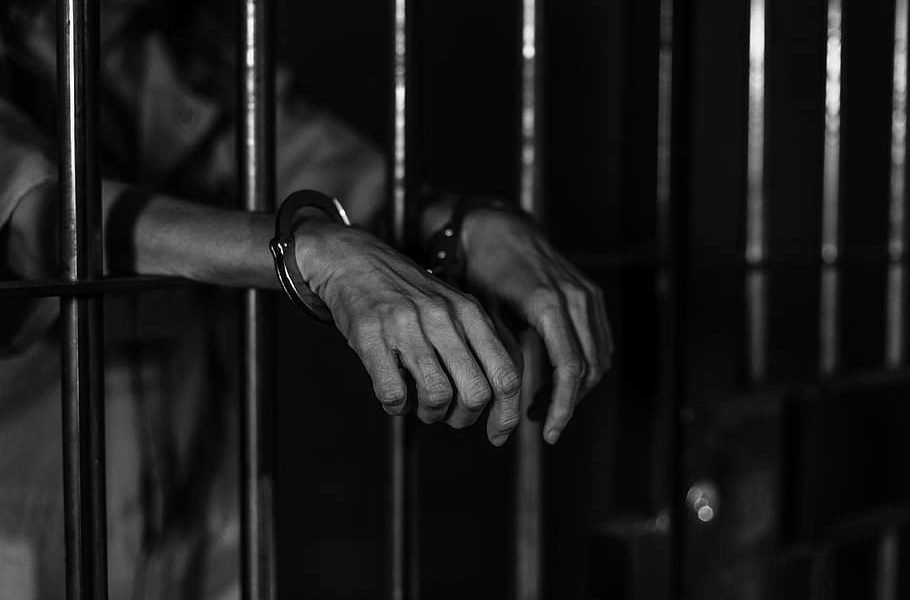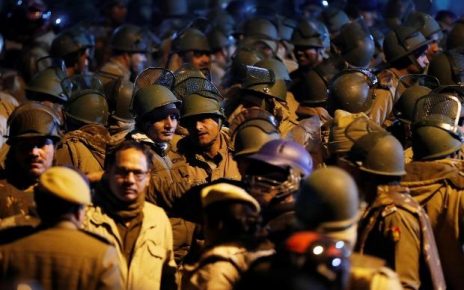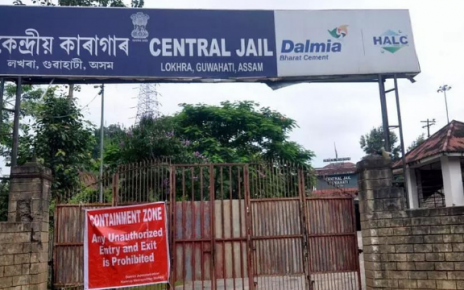The Wire
07 July 2020
By Sukanya Shantha
The amended section 176 (1A) of the CrPC mandates judicial inquiry into every case of death, rape and disappearance in the custody.
Mumbai: On June 26, following nationwide outrage, the Madurai bench of the Madras high court ordered for a judicial magistrate’s inquiry into the alleged custodial murders of P. Jayaraj and Bennix, a father and son duo, in Thoothukudi, Tamil Nadu. A judicial magistrate, M.S. Bharathidasan, was immediately assigned the job, and the magistrate has since been conducting an inquiry parallel to the police investigation.
The high court’s intervention, however, can nowhere be treated as an extraordinary step. The court was, in fact, only spelling out the bare minimum prerequisite prescribed under Section 176 (1A) of the Code of Criminal Procedure (CrPC).
The provision to conduct a judicial magistrate’s inquiry into matters of custodial deaths, rapes and disappearances have existed in the statute since 2015. It was introduced as a replacement to the earlier Section 176 (1) of the CrPC, which until then only prescribed an executive magistrate’s inquiry.
But 15 years later, the amended section continues to remain near dormant. Only with public outrage and a higher court’s intervention is it implemented.
Deaths in custody, both police and prison, have been rampant and there has been a steady rise in the numbers each year. Since the amendment in the law, as many as 1,373 persons have died in legal or illegal police custody. But among them, states have proceeded with the mandatory judicial inquiry in just 298 cases, which is about 21% of the total cases.
These deaths are never straightforward, points out human rights activist Suhas Chakma. “Just by the government data itself, it is clear that most of these deaths occur in illegal police custody. The detained persons die even before they are produced before the magistrate,” Chakma points out. Between 2005 and 2018, 873 out of the total 1,373 persons have died while in police custody, but not remanded by the judiciary. Since their detentions are not judicially sanctioned, those dead were all illegally detained.
The police, however, in almost all cases, shirk responsibility. These deaths, according to the annual ‘Crimes in India’ report published by the National Crimes Report Bureau, happen due to prior illnesses, or by suicide. Seldom these deaths are classified as occurring due to police violence. Medical practitioners and human rights scholars, however, attribute these deaths to poor medical care for prisoners.
The story gets grimmer when the person is incarcerated in a jail. In the case of prions, the number rises dramatically. Since 2005, a shocking 22,027 incarcerated persons have lost their lives in judicial custody or in prisons.
Since over 70% of the total prison population are usually undertrials, most of these deaths could be of those awaiting justice. These deaths are classified simply as caused due to “natural” and “unnatural” reasons, and almost always escape judicial scrutiny. Also, the NCRB report and several independent research findings have concluded that the representation of Dalit, Adivasis, Denotified Tribes, Nomadic Tribes, Other Backward Classes and lower caste Muslims is disproportionately high. In deaths too, these communities are overrepresented.
In November last year, Chakma moved the Supreme Court seeking compulsory implementation of the provision. He says only this provision can bring out the pattern of police violence and extra- judicial killings in the country. “Deaths are common in custody. In most cases, they get passed off as an accepted custodial norm and it doesn’t create any ripple in society,” he says.
His petition points at statistics meticulously collected from the NCRB and the National Human Rights Commission over the past 15 years.
In the process of drafting this petition, Chakma applied for information under Right to Information Act asking for state-wise information on the implementation of CrPC provision. While most states have claimed that the information sought was “unavailable”, a few police stations and prisons from Assam, Delhi, Maharashtra, Meghalaya, Odisha and Telangana however provided information. These states too, however, show utter disregard for the legal provision, Chakma says.
For example, a total of 58 cases of deaths and one case of disappearance took place in eight jails of Assam between 2015-17. However, inquiry by the judicial magistrate was conducted in just one case. Similarly, for the same period in Delhi, five persons had died while in custody but the state carried out a judicial inquiry in just one.
In Maharashtra, even as 47 deaths were recorded, the state police claimed that the information regarding judicial inquiry was “not available”.
Story behind judicial inquiry
The amendment to the CrPC was done after a long-drawn debate and advocacy work by the human rights activists that had begun at least a decade before the law was amended.
Within weeks of its constitution, in 1993, the National Human Rights Commission (NHRC) issued its first ever guidelines relating to custodial deaths and rapes. District magistrates and police superintendents were directed to submit a preliminary report on the incident within 24 hours of its occurrence.
Similarly, the Law Commission picked up the issue of ‘Custodial Crimes’ for its 152nd report published in 1994 and stated that, “Despite constitutional and statutory provisions safeguarding the liberty and the life of an individual, the growing incidence of custodial torture and death have become a disturbing factor in the society and the gory tales of dehumanising torture, assault and death in the custody of police being reported almost in every morning newspaper.” The law commission had observed that executive magistrates or the district collectors only looked at these investigations as formalities and “the findings did not inspire confidence”.
Following the Law Commission’s report, the Code of Criminal Procedure Code (Amendment) Bill, 1994 was introduced by the union of India and referred to the Rajya Sabha’s parliamentary standing committee. After 13 elaborate sittings, the committee submitted its 28th report seeking amendment to the existing law. The report found executive magisterial inquiries to be highly inadequate and therefore, recommended mandatory judicial inquiries after amending Section 176(1A) CrPC. Finally, 11 years later, then Union home minister Shivraj Patil introduced the Bill in the Rajya Sabha.
Chakma says the amendment was done with two crucial objectives. “One was for establishment of accountability of those indulging in custodial crimes and another, also the most important one, was to develop a civilised society governed by the rule of law.”
Failure of judicial system
In his experience of working on the issue for close to two decades, Chakma says, there is a certain degree of accountability seen when allegations of rape are levelled against the policemen. “Cases of rape are more likely to be investigated. The outcome might not be favourable, but the states show some seriousness in dealing with these cases. But in the case of deaths and disappearance, they maintain a radio silence.”
When the executive fails to hold its own accountable, it is the judiciary and the human rights commission that is expected to do the job. “But both have continued to be mute spectators,” he says.
“It is worrying how magistrates never seek an explanation for the deaths of those in their custody. The police close files, claiming the deaths occurred due to illness or by suicide, and the courts blindly accept them. Nothing stops them from following the procedures laid down in the law but they simply don’t,” he adds.
Since its inception, the NHRC has been active in ordering monetary compensation for custodial deaths. “This compensation is ordered only when the commission holds that the person was killed or abused in custody. The commission, however, has failed to hold the erring officers responsible and never intervened before the court or pushed for a penal accountability,” Chakma points out. Between 2005 and 2019, the commission has received complaints and reports in 24,043 cases of custodial deaths or rapes. But not once did the commission seek the enactment of Section 176(1A) CrPC or make any legal interventions.
Since Chakma filed the petition in November last year, notices have been issues to the Centre and all states. But since the COVID-19 pandemic outbreak, the proceedings in the case have taken a backseat.
“The Tamil Nadu incident is only a grim reminder to both the courts and states to act swiftly now and ensure that the judicial process is honoured,” he says.




